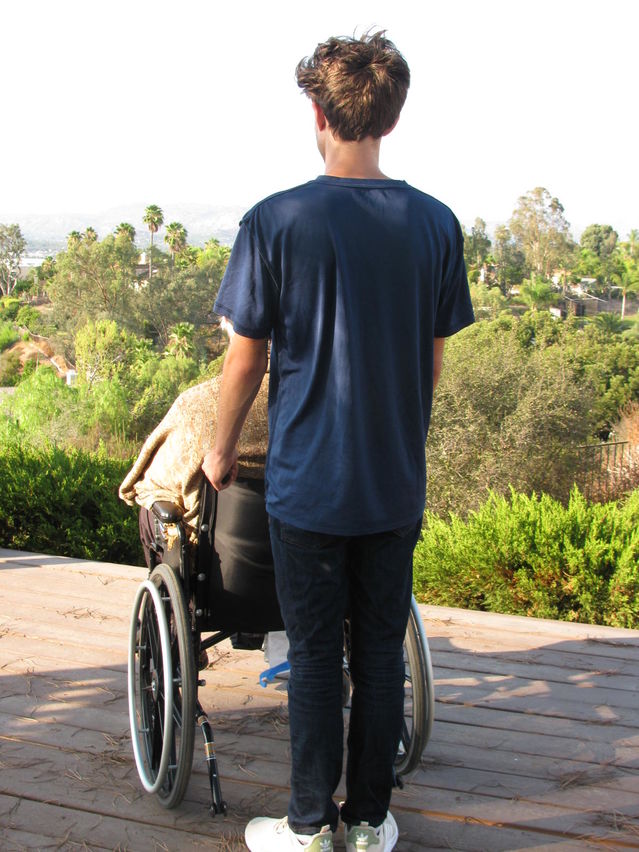Empathy
Can Literature Help Create Empathy?
Why do we often brutalize the most disadvantaged among us?
Posted August 6, 2019
On Aug. 3 of this year, my wife and I drove to San Diego to participate in a walk for the homeless. Father Joe’s Village, a shelter for the homeless, sponsored the walk. The services of this non-profit organization are offered to anyone in need, regardless of race, religious affiliation, or gender.
A number of volunteers helped to organize the event for the homeless, and several hundred people, including many teenagers and children, showed up for the fundraiser. In a world that often breeds skepticism and cynicism, it was heartwarming to see the better side of human nature manifested in so many different ways.
When we returned home later that day, I turned on the television set to relax and watch the news, hoping that perhaps there was some coverage of the fund-raising event. Instead, the script at the bottom of the screen read, “20 dead in El Paso shooting, many more injured.” I barely had time to read the news of that tragedy when another script scrolled across the screen in smaller letters. It read, “Nine dead in Dayton shooting, others injured.” From what I could gather, there were almost thirty casualties between the two mass shootings and forty or fifty more who were seriously injured, some in critical condition. As the coverage continued, I learned that the shooters in both cases were young white males—as was the case in most previous mass shootings.
It was extremely difficult to reconcile the remarkable show of empathy for the homeless I had experienced earlier that day with the senseless slaughter of innocent people in El Paso and Dayton. In the days that followed, I learned the killer in El Paso had expressed “no remorse or regrets” for the lives he had taken. The news coverage also spoke of the outpouring of compassion thousands of people had expressed for the victims and their families.
But why was there so little empathy on the part of the young man and others responsible for similar crimes who killed so many innocent victims? Had something gone terribly wrong in their lives to trigger such tragic events? Were they somehow preconditioned to commit these awful crimes? What could I as an educator and author do to help avoid similar tragedies in my own community?
It wasn’t the first time I had grappled with the issue of empathy in my professional career. A novel I wrote, The Accountant’s Apprentice, is the story of a young man who gradually breaks out of his self-isolation and identifies more closely with the plight of the homeless in his city. The novel was inspired by events in San Diego early in the 2010s, when a number of homeless men were beaten to death, doused with gasoline and set on fire, or stabbed with railroad spikes. The most troubling aspect of these senseless attacks was the complete lack of empathy for the homeless who were already reduced to living on the streets. It was inconceivable that someone would vent their rage on those who were already living in hopeless despair.
We haven’t always been the most empathetic of nations. The early New England Puritans, as much as we praise their work ethic, they were not empathetic people. They believed wealth was a sign that they had been blessed by their Old Testament God, whereas poverty was a sign that this same God looked upon others with considerable disfavor. The poor were thus viewed as morally inferior, and the Puritan had little empathy for them—which is one of the reasons why the poor were among the first to be executed at the Salem Witch Trials in 1692.
The Social Darwinists at the end of the nineteenth and beginning of the twentieth centuries were perhaps even less empathetic. These philosophers, economists, and business tycoons adopted the research of Charles Darwin to argue that the poor and unfortunate were necessary casualties who should be allowed to die so stronger members could create a more prosperous society. In our national literature, authors like Jack London and Stephen Crane were influenced by the ideas of the Social Darwinists. Crane, however, appears to be trying to evoke empathy in his readers through his dispassionate writing style, hoping they will become outraged by the descriptive details of the suffering he describes in the New York slums. London bounces around between philosophies, but he seems more committed to the Social Darwinist view of life.
Many of our authors, however, have created storylines that are very empathetic toward those who have been evicted from mainstream society. John Steinbeck’s The Grapes of Wrath, Of Mice and Men, and other stories were written to evoke empathy for the destitute farmers, migrant workers, and others who struggled to survive during the Great Depression. Willa Cather, in My Antonia, created empathetic European immigrant families who survived just about everything nature and the human race could throw at them. When asked to describe her own artistic skills, Cather replied that she felt she had the ability to evoke “the gift of sympathy” for her characters. Harper Lee, the author of To Kill a Mockingbird, evoked considerable empathy for both the mentally ill and an African-American man accused of a crime he did not commit.
Ursula Le Guin’s short story, “The Ones Who Walk Away from Omelas,” is one of the best examples of how literature can challenge young minds to develop empathetic responses to people who are suffering. The plot of the short story involves a utopian city that is prosperous and the people are very happy. However, the city has struck a deal with some unstated power that its inhabitants can have this lifestyle only if one wretched child is imprisoned in the city’s dungeon where it must live and sleep in its own filth. So long as the residents of the city are willing to accept the sacrifice of this child, they will retain their utopian lifestyle. If they decide to free the child, however, they will lose this utopian existence and plunge into poverty and the other woes that torment the human race as a whole.
The story elicits some interesting insights when students are required to respond to whether they would give up their own luxuries so the child can be freed; or would they keep those luxuries, knowing a single child would have to be sacrificed so they can maintain this lifestyle? When I had my students write an essay describing what choice they would make, one-third said they could give up their luxuries to free the child; another one-third were undecided, and a final one-third said they would be unable to give up their luxuries to set the child free from its misery.
Empathy did not win out in the latter group. My guess is the results would be very similar if the same question was posed to a class of adults. The importance of Le Guin’s story, however, is that even if students do not have the empathy to free the child, it forces them to grapple with the moral dilemma of making this difficult decision. Selfishness may overcome empathy, but Le Guin’s story sensitizes them to be more aware of the importance of empathy in making decisions that affect the lives of other people.
So what is empathy? Is it learned behavior? Is it taught in the home? Is the absence of empathy a sign of a poorly developed brain? Is it all of the above?
I don’t have all of the answers to those questions. I only know that literature and the arts can help create more empathetic individuals. Whenever we read a book, we are forced to see a new reality through the eyes of some character other than ourselves. That character (or characters) forces us to identify with his or her struggles to overcome challenges that we may not have faced in our own lives. In the process, we must identify completely with another human being. Our own selfish or self-centered needs must be momentarily set aside, while we assume the identity of another person—and that is the very definition of empathy.
I do not mean to suggest that the study of art and literature will suddenly change the self-centered beast in all of us. But those of us who have taught literature for many years have seen some significant transformations in students who suddenly identify with a literary text that speaks to them with empathy for other people, especially the disadvantaged. We have seen these students grow out of their self-centered adolescences and into the kind of people, both young and old, I met at Father Joe’s Village’s Walk for the Homeless—and not the kind of young men who brought such recent tragedies to El Paso and Dayton.





